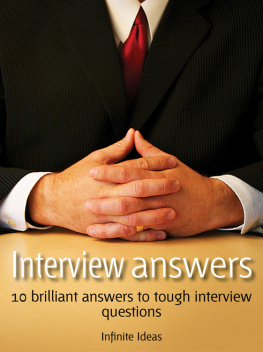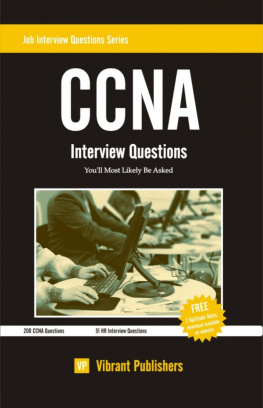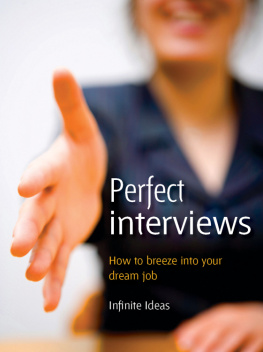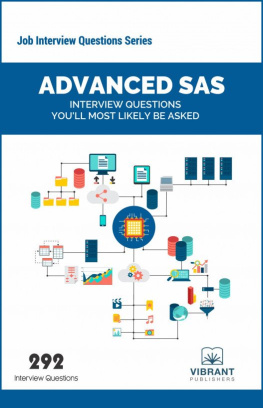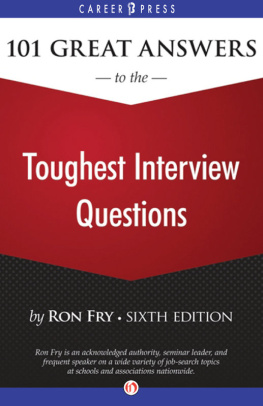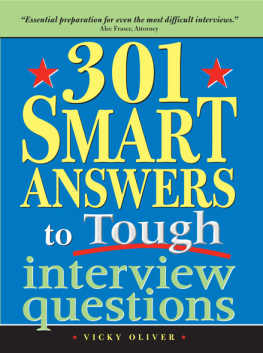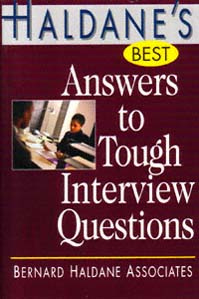Interview answers
10 brilliant answers to tough interview questions
Infinite Ideas with Ken Langdon and Nikki Cartwright

How important to you is your work/life balance?
The answer to this is important, as much to you as it is to them. Make sure you do know what that balance should be before you go in. Heres a way of working that out plus some suggestions to make them love your answer.
Theres no point in just being a safe pair of hands for the job. That just puts you up with the others. Add some flair and evidence to your answers and youll stand out.
Everyone is going to say that theyre indeed looking for a balance and that their partner/children/interests blah, blah, blah are important as well as their career. Heres a quick process thatll help you to know what you really want and at the same time give you an interesting way of answering the question.
Work out your starting point
There are 168 hours in the week, of which you spend 56 in bed. This leaves 112 for living in. Draw a three-by-three matrix of nine square boxes and write an activity heading in each of them. The headings will include some of the following: friends, relationships, family, alone time, personal development, health, hobbies, leisure, creativity, work and any other areas of life that you enjoy or endure. If you need more squares just add them. Dont forget to add areas in which at the moment you do nothing but which you wish to get involved in.
Now list the number of hours in a typical week you spend in each of these areas, convert it to a percentage of 112 and write the percentage in the appropriate box.
Thats your starting point. You may wish to check what you have written with your partner and a work colleague to make sure youre not indulging in wishful thinking. If the percentages are just what you want, well done; you just have to think through how to tell the interviewer this.
One person who did this exercise decided that he was spending too many hours watching television and too many hours working. The box that suffered from this was the one marked wife and family. He resolved therefore to switch the TV off between Monday and Thursday. He told his boss he was only going to work late three evenings a week and that he was leaving each Wednesday and Friday at five oclock. He started to take his wife out for dinner once a month and told his two sons that every other weekend they could have half a day of his time to do anything they wanted to do provided it didnt cost more than twenty dollars. He actually implemented a plan that was OK with his boss and delightful for his family.
Plan the situation for the future
Now look at the areas where you want to make adjustments. For every area whose percentage you increase you have to make a choice about which area you are going to reduce. Add in any activities that currently you dont do but have resolved to get started on. Now convert the percentages into hours and see if you believe you have a feasible plan.
Thats the exercise. Now turn it into a brilliant answer to the question. Its probably a good idea to suggest youve gone through such a process. Tell them what the answer is. Watch their faces, though; some of them may be workaholics and think thats the only way for an ambitious person to be. Add a safety-first rider like I think that when anyone starts a new job they probably have to work a lot of hours to get it under control; if necessary during that time Ill work all the hours God sends. You can also point out that people who achieve a good work/life balance tend to be more effective at work. Its not just the hours you work; its your attitude to getting things done.
Heres an idea for you
Were going to come across a number of questions where your research will be much improved if you have a friendly contact in the organisation you are interviewing for. This is one of them. Question them about the culture of the organisation and its attitude to work/life balance. Its very valuable to have that information before you go in.
Try another idea
If you like this tip there are 40 more on Kindle at the UK store and the US store .
Defining idea
It is impossible to enjoy idling thoroughly unless one has plenty of work to do. ~ JEROME K. JEROME, British essayist
How did it go?
QIm trying to change my work/life balance away from work. Thats why Im applying for this new job. Id like to work less than forty hours per week thirty-five if possible. Is this an acceptable reply?
AIt has to be really. If they dont know and appoint you, then either or both of you are going to be disappointed. Careful how you word it, though. Youre trying to look like a person who makes a good contribution at work but has other important things to do, not work-shy.
QIm trying to get a promotion in a company I already work for. The team Im trying to join are in the habit of going for a drink after work most days. Quite honestly, I dont fancy that and would prefer to use that time in other ways. Should I tell them?
AAh, no. When you join youll find it easy enough to join them from time to time without its becoming an uncomfortable habit. We would put this time firmly in the work part of the matrix, join them to keep up with the internal politics and slip out when it becomes idle chatter. But theres no need to explain all that in the interview.
May I pass you over now to my colleague?
Aha, youre in a panel interview. There are special techniques for handling a group of people in a more formal environment.
The difficulty in panels is maintaining the interest of all the members at all times. As an example of panel interviews, well take a type that many organisations use. They put a hurdle in place that all potential managers from all parts of the business must jump if they are to move into management at all. This is not an interview for a specific job, but a check to ensure that you have what it takes to make the first rung of the corporate ladder. You need to pass such panels first time and preferable easily and unanimously.
Keep everybody interested
The panel interview is a more formal process and less of a conversation. Prepare thoroughly and try to be precise in your answers rather than more conversational. Use questions to establish quickly the role of each panel member. Try to make all the members of the panel speak, and then listen to what they say. All the clues will be there. The HR person will know when in interviews its right to hold their tongue, but the line managers will often respond, particularly if they have already listened to a number of enthusiastic talkers who listen very little.
Lets look at possible pitfalls. How will you go about the technical side of a project? This one could take you into your comfort zone and make you go into too much detail. Its always possible to check that youre at the right level: Is this answering your question or do you want more detail? should get an honest response from the chairperson. If youre answering a technical question that one panel member is interested in, still check on the others: Im conscious that Im going into some detail on this. Is that OK?
Why do you think this is the right time for you to go into management? Square away your current job, and then show your ambition: Were coming to the end of the second phase of my current project; so its good timing from my bosss point of view. Rather than moving on to another project, I feel that Im ready to go up a gear. I think Ive shown that Im at my best when Im given more and more responsibility and thats what Im looking for in my next job.
Theyre almost certain to ask about poor performers, since managers have to deal with some tough situations: What would you do if one of you team members was really not performing? You need to show you have the authority to handle such a situation, but dont jump in with Well, sack them. Know the rules and procedures for what has to be done. Your answer needs to show them that when youve exhausted coaching, training and all the HR procedures, you will have the assertiveness to do what needs to be done and move the poor performer on if its necessary. In the end its not just me and the team who are in a bad situation; its also the poor performer. Its in their interests as well to resolve the problem once and for all.
Next page
